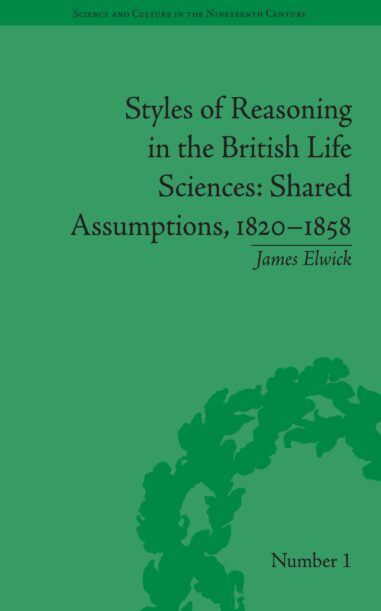
Paperback $55.00
Request Exam or Desk Copy. Request Review Copy
Styles of Reasoning in the British Life Sciences
Shared Assumptions, 1820–1858
I learned a great deal from Elwick’s book about matters relevant, not just to my interest in the history of the period in question, but also to issues still at stake in contemporary philosophy of biology. Historians and philosophers of biology alike have much to gain from reading it.

